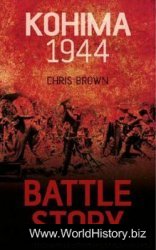However much individual soldiers earned, it is clear that some pay was withheld for expenses and in savings. A number of papyri list these deductions, and one well-known example (P. Gen. Lat. I, recto 1 = Fink 1971: no. 68 = Campbell 1994: no. 24) shows sums withheld for food, boots, socks, clothing, and the camp Saturnalia, as well as sums kept on deposit. Even if supplies were provided to individuals by the army, they had to be acquired from somewhere. Some things were produced by the army itself, in productive facilities owned by the state, such as the large military brick, tile, and pottery factory at Holt near Chester in Britain (Peacock 1982: 136-50 provides a summary). Some items were requisitioned or otherwise acquired from resources owned by the state. P. Dura 64 (= Fink 1971: no. 91) shows the transfer of barley to soldiers from an imperial estate, probably rents taken in kind from tenants by imperial officials, and there are a number of ancient references to (perhaps exceptional and abusive) requisition by the army (Pliny Pan. 29; Dio 77.9.3).
However, the majority of military supply needs were probably met from civilian sources and most (at least in the early and middle empire) in return for cash payment, leading to the transfer of coinage envisaged by Hopkins and others. A few documents that survive, mostly by chance, show this process. A papyrus of 138 ce (BGU 1564 = Campbell 1994: no. 239) shows an advance payment being made to civilian weavers in Philadelphia (Egypt) on a contract for clothing and blankets for the army in Cappadocia. Recently discovered writing tablets from Vindolanda (Britain) appear to show commercial acquisition of a very wide variety of goods (food of many varieties, clothing and textiles, hides, and wooden cart parts) by the army from civilians, although in most cases the exact status of those involved and the nature of the transaction is open to some doubt (see Tab. Vindol. II 180, 182, 184, 186, 192, 207, 302, 309, 343, with editors’ notes).
In addition to being an expense for the state’s resources, the Roman army was directly responsible for some of its income. Besides the general acquisition of booty from war, the army oversaw the extraction of resources such as precious metals for the state from the provinces. The importance of exploitation, both official and unofficial (see below) by the army as an agent of Roman imperialism has sometimes been overlooked in favor of models that emphasized economic development and stimulation. In some cases this may reflect scholarship originally shaped in an environment of more recent, western imperialism.




 World History
World History









